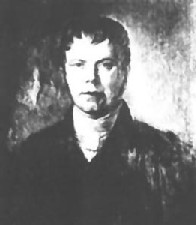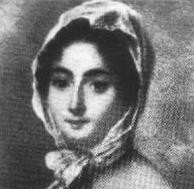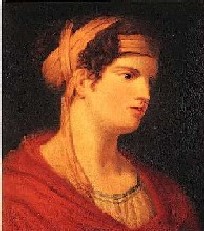Beethoven burst onto the public scene as a composer at the
end of March, 1795. This is the series of activities that
kept him busy for the remainder of that year:
- Benefit performances at the Burgtheater on
March 29th, 30th and 31st,
namely for:
- The widows of the Tonkünstlergesellschaft
(Society of Tone Artists) on March 29th
and 30th, whereby Thayer
assumes, that he played his Piano Concerto No.1, Op. 19, and
improvising on the piano, and for
- A concert organized by Konstanze Mozart, at which
Thayer assumes that he played Mozart's Piano Concerto in
D minor, but which Cooper describes as 'unspecified' (Cooper: 55);
- Signing a contract with the Viennese publisher
Artaria for the publication by subscription of his
Trios Op. 1/1 -3. With 123 subscribers, he may have
made a good profit;
- Throughout the year, completing various smaller
compositions;
- Performing at the ball of the Gesellschaft der
Bildenden Künstler (Society of Fine Artists)on
November 22nd; Haydn had written a set of
12 minuets and 12 German dances for this event in
1792. In 1795, the dances for the larger room were
"Written by the Imperial Kapellmeister Süßmayr,
for the smaller room by the master hand of Hr. Ludwig van
Beethoven out of love for the artistic fraternity"
(Thayer: 177);
- His last appearance in 1795 at the December 18th
grand musical concert at the Redoutensaal given
by Haydn who had returned from England in August.
Beethoven played a "piano concerto of his composing".
While Cooper had had a chance to clarify some of the traditional bases
of our notion of Beethoven's difficult relationship with Haydn, he
still refers to the fact that Beethoven often expressed that he had
not learned much from his teacher (Cooper: 49). At this particular
point we should mention that Beethoven is reported as having felt that
Haydn meant to set limits to his
creativity when he advised him not to publish the
third of his Trios Op. 1, which he considered too
advanced for the public to understand.
While Beethoven was also reunited with his brother
Nikolaus Johannes who came to Vienna towards the end of 1795
(he soon found a position as a pharmacist), he also made
plans for a journey to Prague and Berlin in 1796. His most
important patron, Prince Lichnowsky, with whom he had lodged
since soon after his settling in Vienna, traveled with him to
Prague (as the Prince had done before with Mozart in 1789).
From Beethoven's letter to Nikolaus Johannes van Beethoven of
February 17th, 1796, we learn that his stay in
Prague was very successful and that he found new friends
there. While Prince Lichnowsky at some point returned to
Vienna, Beethoven went on to Dresden towards the end of
April, stayed there for about a week, played for the Elector
and received a golden snuff box as a gift, and then made his
way to Berlin. His stay there could be considered as the most
successful part of this journey. He played before the Court
of King Frederick William II the two Grand Sonatas with
obbligato violoncello, Op. 5, which he had written for
Duport, the King's first violoncellist. Beethoven may have
received an invitation by the King to stay permanently which
he did not take up on the grounds that he considered the
Prussian nobles "spoilt children" who sobbed and
cried during his moving improvisations. He made one exception
in his appraisal by considering Prince Louis Ferdinand's
piano playing as "professional".
Later in the year, Beethoven appeared successfully in
Pressburg and Pesth where he also tried to promote the piano
made by his piano maker friend Johann Andreas Streicher, a
Stuttgarter who had previously joined his friend Friedrich
Schiller in 1782 when the poet fled to Mannheim, and who
later married piano maker Stein of Augsburg's daughter
Nanette and moved the business to Vienna. For a period of two
to three months between his return from Berlin and his
journey to Hungary, Beethoven's whereabouts are unaccounted
for. Researchers ponder as to whether the infection Beethoven
was reported by the Salzburg physician, Professor Weissenbach
(who met Beethoven in 1814) as having suffered from and which
supposedly may have led to his loss of hearing occurred in
1796 or, more likely, in 1797 (Cooper: 72). It is also not certain what kind of infection
he might have had or not.
The years 1797 - 1801 inclusive were years of Beethoven's
cementing his success as a young composer and as an
experienced performer in Vienna which saw the creation of his
still popular early works in the classical tradition
established by Haydn and Mozart, yet also increasingly being imbued with his
own spirit. (During this period, Beethoven
undertook two more journeys, of which the first took him to Prague in the
fall of 1798 and a journey to Hungary in the spring of 1800, to perform in
Budapest with Wenzel Stich (Giovanni Punto) and to visit the Bunsvik estate
nearby.)
They also saw his growing confidence in himself and the
haughty manner in which he treated those who did not share
his confidence, as well as his hiding behind this haughtiness
his extreme artistic sensitivity, all at once basking in the
devotion shown to him by his patrons but also rejecting it if
it became too much to bear.
His growing popularity as a teacher of young ladies of the
noble class attached to his name that of several young
ladies; Beethoven's friend Wegeler, who left Vienna in 1796
to return home, would later consider the matter of the young
composer's romantic interests who, in his opinion, "was
never out of love." To this, Maynard Solomon has to
comment that the 1795 rejection of his marriage proposal
Beethoven received from the singer Magdalena Willmann (in total described as
unreliable, second-hand recollection by Cooper) as well
as his Kantian code of ethics in mainly driving himself to
serve society with his art, and his over-idealization of
women did not entirely fit Wegeler's description of this
issue.
Beethoven also made friends among certain musically active
noblemen such as Baron Zmeskall (who used to sharpen
Beethoven's quills) and musicians he worked with such as
Johann Nepomuk Hummel or Ignaz Schuppanzigh. The closest
personal friends of that period, however, were Lenz von
Breuning who stayed in Vienna in 1797 (he died in 1798) and
Carl Amenda, a Baltic theologian and violin player who stayed
in Vienna from 1797 to 1799.


